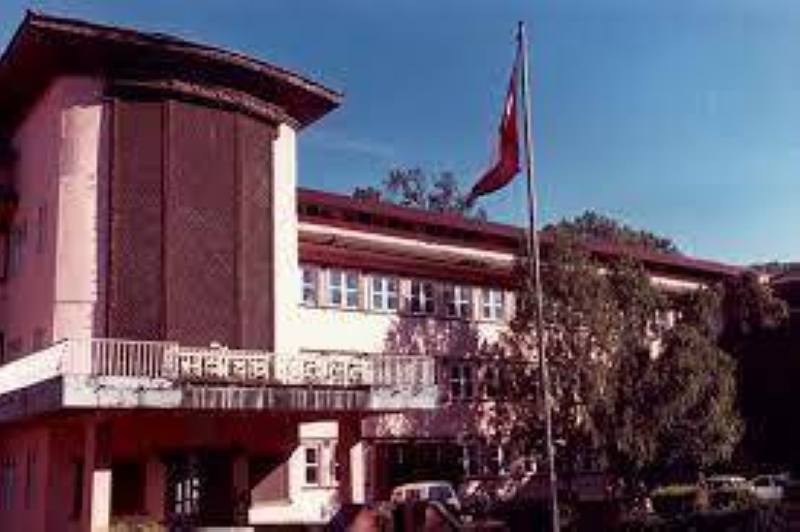
KATHMANDU, AUGUST 28
The Supreme Court has issued an interim order on the decision of the Department of Transport Management (DoTM) to mandate inter-province passenger and cargo vehicles to obtain an inter-provincial route permit on the writ filed by the truck operators against the department's decision on Friday.
Although the truck operators have already obtained route permits to operate across the country, traffic authorities of Naghdhunga had been taking action against truckers for not having inter-provincial permits after which the federation had filed a writ at the court despite many attempts to resolve the issues through discussions with officials of the department.
Speaking at a press conference held here today, Rajendra Bikram Baniya, general secretary of the Federation of Truck Transport Entrepreneurs of Nepal (FTTEN), shared that truck operators were being slapped with fines and forced to get an inter-province route permit despite having permits to operate across the country.
He requested the department to arrange a new inter-province route permit for trucks whose old permits have already expired.
The responsibility for inter-provincial transport management has been given to the department and its subordinate offices located at Teku, Itahari, Hetauda, Butwal, and Attaria.
According to Baniya, more than 70,000 freight vehicles are operating across Nepal.
"However, as the government offices are open only during the day while trucks are allowed to enter only during the night time, the process of issuing an inter-province route permit has become more cumbersome," he said.
The federation has also shared that truck entrepreneurs are facing many problems in their operations and has urged government authorities to take action to safeguard the investment of the truck entrepreneurs.
The federation has urged the government to restrict entry for Indian freight vehicles. Baniya mentioned that Nepali freight operators have to deposit a guarantee of over Rs 50,000 to enter India while Indian freight vehicles are free to enter the country.
"While we are ready to engage in a healthy competition, the provision requiring deposit of a certain amount of money to the government of India and the huge gap between truck prices in Nepal compared to its southern neighbour has put Nepali truck operators at a disadvantage," he said.
The FTTEN has also urged the government to effectively implement the fares fixed for freight transports which will help control market prices, arrange dedicated parking areas for trucks in major cities, ensure proper handling of accidents, arrange treatment facilities for the injured involved in accidents with trucks, introduce laws for trucks taken under control by authorities, ensure employment security for employees working in the sector.
"Many accidents have occurred after moving vehicles crashed into trucks parked on the roadsides. As trucks are not allowed to enter the valley before 8:00pm and due to the lack of dedicated parking stations, trucks are at risk of getting involved in accidents while in a parked state. Also, the federation has reached an agreement with hospitals across the country to immediately care for any injured victims involved in truck-related accidents."












